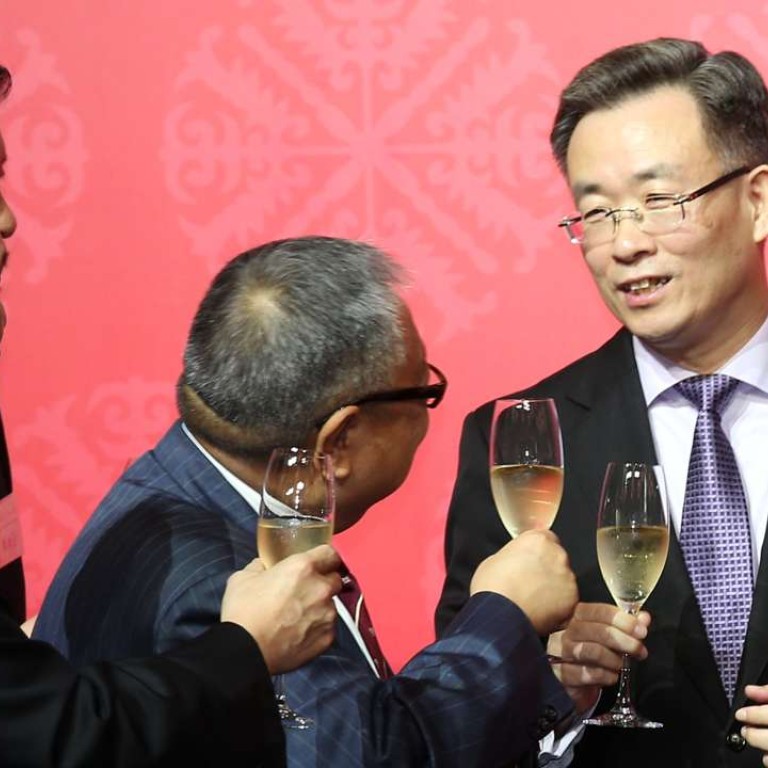
Song Zhe, Huang Liuquan promoted to deputy director of Hong Kong, Macau office
Zhou Bo removed from post just a week after welcoming chief executive on annual visit
The nation’s top foreign affairs official in Hong Kong has been promoted to a Beijing post in the latest management reshuffle at the State Council unit specialising in local affairs.
Song Zhe, the foreign affairs ministry’s commissioner in the SAR since 2012, was named a deputy director of the Hong Kong and Macau Affairs Office.
China watchers said the appointment showed that diplomatic experience managing Hong Kong’s place as a global city in the context of the country’s international relations and “one country, two systems” was important.
Huang Liuquan was also named deputy director – a promotion from his post as director general of the law department.

The office continues to be led by Wang Guangya, who, like Song, is a career diplomat. Wang was deputy foreign affairs minister before becoming head of the office in 2010. In March, Wang said he was “prepared to step down at any time” as he was past the retirement age of 65 for officials at his rank.
But the latest announcement suggested he would be around for “key events” such as the coming chief executive election, veteran China watcher Johnny Lau Yui-siu said.
Song, a former ambassador to the European Union, “is following Wang’s track”, Lau said. “On the positive side, it shows Beijing still attaches great importance to Hong Kong’s connections with the outside world.
“But on the negative side, this kind of close ties worries Beijing,” he added, noting the central government was wary of giving democracy activists a profile overseas.
Pro-Beijing politicians have repeatedly warned of “foreign interference” in Hong Kong affairs.
But Lau Siu-kai, vice-president of the Chinese Association of Hong Kong and Macau Studies, said the reshuffle carried no hidden agenda as the roles were administrative rather than political.
During Leung’s duty visit, Premier Li Keqiang cited Hong Kong’s international standing, saying it could withstand global financial volatility. In his new year speech a week ago, Song vowed his office would help the city seize opportunities related to China’s “One Belt, One Road” trade initiative.
The reshuffle comes after the Communist Party’s Central Commission for Discipline Inspection found in its audit of the office in October that it had weak leadership, corruption risks and was ineffective enforcing orders. Its use of personnel was also not satisfactory and the office was urged to strengthen its leadership and political discipline.

